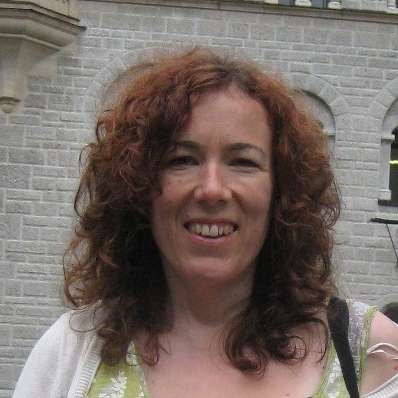Sometimes, glancing through reviews and recordings of Baroque opera arias, one might be forgiven for wondering whether tenors and basses ever appeared on the 18th-century stage – the genre seems dominated by the exotic lives of the castrati and the incredibly exciting music that was written for them. This evening’s concert by tenor Ian Bostridge and Northern Sinfonia, conducted by Bernard Labadie attempted to redress the balance, and showed that in fact the sopranos, mezzos and countertenors don’t have all the fun.
Ian Bostridge’s programme was made up of arias written specifically for three superstar tenors of the age – two Italians, and an Englishman. These were men who took the skills of their castrati colleagues and transferred them to the lower voices, and by doing so, achieved such fame and popularity that composers like Vivaldi and Handel created roles especially for them, and Bostridge chose works which reflected the individual characters and talents of each man.
Our first tenor was the Italian Francesco Borsini, who seems to have made such a name for himself with the role of Bajazet in Gasparini’s tragic opera about Tamerlane that Handel later wrote a new version of the opera to capitalise on Borsini’s skills. Bostridge performed both composers’ versions of the aria “Forte e lieto”. Gasparini’s setting was perfectly pleasant, but Handel’s version was far more interesting, with richer colouring in the orchestral writing, and a dramatic tension at the end that Bostridge brought out beautifully – a quick lesson in what makes a truly great composer.
Vivaldi’s operas are seldom performed in full today, due mainly to their length and to the complexity of their staging, so it was a treat hear two arias that he wrote for Annabile Po Fabri. Fabri’s arias were characterised by their sheer virtuosity; Bostridge’s performance was technically flawless, and his perfectly rounded Italian vowels were a joy to listen to. It was, however, somewhat dry at times: Baroque opera is not a genre that demands tasteful restraint, and these were arias that express extreme emotions, so a little more drama would not have gone amiss. The exception here was Bostridge’s final Borsini aria, Handel’s “Scorta siate a passi miei” from Giulio Cesare. This aria was full of explosive anger and Bostridge almost shouted the words “Fate al fin sia vendicato” (“Let me have vengeance at last”), but without any loss of tone, and he was backed up with some wonderfully energetic playing by the orchestra.
The most enjoyable singing of the evening came at the end, in an aria written by Handel for English tenor John Beard. The programme notes told us that Beard had quite a reputation as a lover, which perhaps explains the lyrical sensuality of From Celestial Seats Descending. This aria suited Bostridge’s creamy tone and he sang it seductively. Beard’s vocal range was clearly the best match for Bostridge’s own voice, whereas the Italian arias had some low passages in which the singer was lost behind the orchestra.
The arias were interspersed with dance suites from Handel’s operas and symphonies by William Boyce, all of which were played with energy and aplomb by Northern Sinfonia, complementing their excellent accompaniments to Ian Bostridge. It’s not often that we hear Northern Sinfonia playing Baroque music on their own, rather than accompanying one of the big choral works, and this stylish performance under the expert guidance of Bernard Labadie showed just what they can do.
Boyce’s Symphony no. 5, opening the concert, was bright and snappy, characterised by beautifully delicate brass in the first movement and sprightly oboes in the third, and the other Boyce work, his Symphony no. 1, had a delightful flute solo for Juliette Bausor. The dance movements of Handel’s suites were all taken at a rapid pace, although a little more contrast in speeds would have been welcome. The gavottes and menuets were full of humour, with phrases running rapidly into each other and ending with cheeky flourishes, while the slower sarabande movements in both suites were graceful and sinuous. The echoing phrases in the Alcina sarabande were particularly effective – instead of a big dynamic contrast, Labadie had the whole movement played quietly, and with just a subtle difference on the echoes.
Above all, Labadie and Northern Sinfonia reminded us that historically accurate instruments are not, in themselves, necessary for a good performance of Baroque music: what is more important is the infectious spirit that comes from absolute rhythmic accuracy and a sense of style. The orchestra tonight were far more than just an accompaniment to Bostridge, and this was reflected in the audience’s warm responses to their playing.


